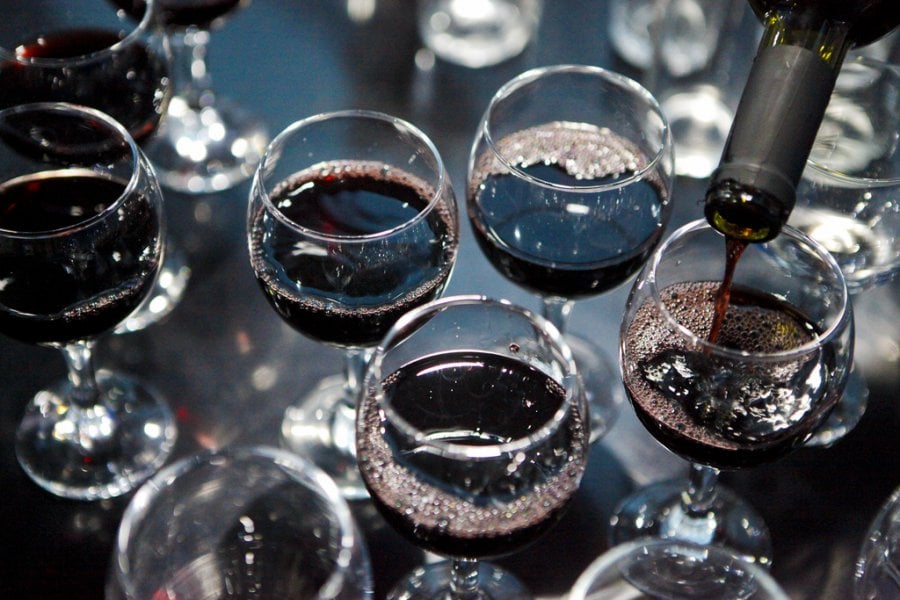Voluntary pledge to provide calorie content information for alcoholic drinks fails to make significant progress
22 June 2017 London School of Hygiene & Tropical Medicine London School of Hygiene & Tropical Medicine https://lshtm.ac.uk/themes/custom/lshtm/images/lshtm-logo-black.png
The study, conducted by the London School of Hygiene & Tropical Medicine, highlights that the voluntary pledge by the UK industry in 2011 to provide information on alcohol calories has not led to any significant improvement in provision of this information to consumers. It found that calorie information only appeared on the labels of around 1% of 156 products examined, was not present in any of the supermarket branches visited in the study, and not routinely provided on supermarkets’ websites.
Alcohol is a major source of ‘hidden’ calories in the diet of adults who drink and a significant contributor to obesity. Among adults who drink, it is estimated that about 8% of their daily calorie intake comes from alcohol. However, no country in the world currently requires the calorie content of alcohol to be stated on packaging.
A recent European Commission report on the mandatory labelling of alcoholic beverages suggested that industry appears to be increasingly willing to adopt voluntary initiatives to offer nutritional information, citing commitments by some alcohol producers. In 2011, alcohol retailers and producers in England pledged to provide consumers with information on the calorie content of alcoholic drinks as part of the Public Health Responsibility Deal (RD).
One of the core commitments made by participating organisations was to ‘foster a culture of responsible drinking, which will help people to drink within guidelines’. Upon signing up to the RD, organisations were asked to provide pledge delivery plans, setting out how they would deliver on each pledge they had selected, and to send annual progress reports to the Department of Health. This study sheds light on how and to what extent such pledges have been implemented.
The research team found 70% of signatories to the pledges made no clear commitment to provide information or made no mention of calorie labeling in their pledge delivery plans. Progress reports were only available for a minority of signatories in 2012 and 2013. Most signatories (86%) provided progress reports in 2014, but the majority (74%) did not mention alcohol calories. Those that did had not provided information directly to consumers, or only in a very limited fashion.
Researchers assessed the extent of calorie information provided in the alcohol sections of the stores. The sample included five city-based stores from each of the 10 leading supermarkets and one major wine retailer, all of which had pledged to provide calorie information.
They also examined the online shopping websites (where available) of each supermarket to see what calorie information was provided on three specific alcohol products - white wine, beer, and vodka. The team also searched elsewhere on the supermarket websites and on their Facebook pages for information on alcohol calories. No information was provided in any of the stores and calorie information was not routinely provided on supermarkets' websites.
The investigators conclude that one of the stated purposes of the RD to provide consumers with the information to make informed health-related choices did not take place to any significant extent.
Professor Mark Petticrew, from the Policy Innovation Research Unit at the London School of Hygiene & Tropical Medicine who led the study, said: “Alcohol contributes significant calories to the diet of even moderate drinkers, and provision of calorie information to consumers is a potentially important way of helping them reduce their calorie intake if they so wish. Few of the organisations that committed to act on this issue as part of the RD had taken specific action to provide consumers with alcohol calorie information in either their physical or online stores.
“The public is in favour of alcohol calorie labelling – lack of provision of information on alcohol calories makes it more difficult for people to make informed choices about their own health. Provision of alcohol calorie information would potentially contribute to measures to address the problem of adult obesity. The voluntary implementation of alcohol calorie labelling by industry needs to continue to be carefully monitored to determine whether and how it is done.”
The authors acknowledge limitations of the study, including that the findings may not apply to all stores across England. However, given the lack of provision of information in all the stores visited, it is unlikely that this is an artefact of the sample. It is more likely that it reflects a wider absence of information.
The research was funded by the Policy Research Programme of the Department of Health for England via its core support for the Policy Research Unit in Policy Innovation Research.
Publication
M. Petticrew, N. Douglas, C. Knai, N. Maani Hessari, M.A. Durand, E. Eastmure, and N. Mays. Provision of information to consumers about the calorie content of alcoholic drinks: did the Responsibility Deal pledge by alcohol retailers and producers increase the availability of calorie information? Public Health. DOI: 10.1016/j.puhe.2017.04.020
Our postgraduate taught courses provide health practitioners, clinicians, policy-makers, scientists and recent graduates with a world-class qualification in public and global health.
If you are coming to LSHTM to study a distance learning programme (PG Cert, PG Dip, MSc or individual modules) starting in 2024, you may be eligible for a 5% discount on your tuition fees.
These fee reduction schemes are available for a limited time only.